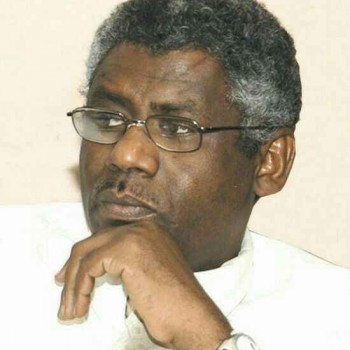Weaving New External Alliances (2-2)

By: Adil El-Baz
As I see
1
In the previous episode, we saw how the recent Sudanese diplomatic movements revealed new directions for foreign policy in Sudan, the features of which are not yet complete, but they send many signals that indicate, through their tracking, that Sudan is on the verge of a major turning point in its foreign relations. Now, why is Sudan now searching for its alliances outside its vital geographic space?
2
Sudan sought to secure its ancient relations with Turkey. It is known that Turkey has ancient relations with Sudan (the history of Sudanese-Turkish relations goes back to the year 1555 AD when Sudan entered under Ottoman sovereignty when the Ottomans established what is known as the Abyssinian Eyala (Governorate) over part of eastern Sudan and part of the state of Eritrea. The current capital of that governorate was the city of Suakin. As for central and southern Sudan, their relationship with the Turks began in the year 1821 AD, when Mohammad Ali Pasha invaded Sudan, and his state continued to rule the country until its fall at the hands of the Mahdist revolutionaries in 1885 AD.)
In the modern era, political relations have fluctuated greatly between Sudan and Turkey. Turkey has taken a firm and supportive position for Sudan during the thirty years of the Ingaz regime led by former President Omar Al-Bashir. What is constant across all systems is that Turkey’s trade relations with Sudan have not been interrupted and are constantly evolving, from 450 million in the year 2020 to nearly a billion last year.
The pace of Turkish-Sudanese relations began to accelerate since the end of last year, following the visit of Sudanese President Abdul Fattah Al-Burhan to Turkey, which took place on September 13, 2023. The relevant circles did not reveal the real agenda behind the visit, but the leaks indicated an invitation made by President Al-Burhan to Turkey to mediate in the conflict. President Erdogan welcomed the idea, but there was no development to present an initiative to resolve the Sudanese crisis or bring together its parties. However, Turkey clearly announced its support for the Sudanese army, which it recognizes as a legitimate example for Sudan. In light of the recognition, Sudan placed on the Turkish government’s table specific requests regarding commercial dealings, especially in the field of gold, in addition to requesting equipment and drones to assist in its war efforts. However, the results of these requests have not yet appeared. These efforts and the continuous visits of various Sudanese political and economic delegations, in addition to the recent escalation of the movement of Turkish influence in Sudan, made the forging of a strong alliance necessary for the interests of both parties, especially since Turkey has strategic interests, whether those related to Sudan or its growing presence on the African continent, and as part of Turkey’s goals of developing its relations with Sudan, as Sudan is its main gateway into Africa.
In the process of weaving its new alliances, Sudanese diplomacy turned to restoring Sudan’s relations with Algeria, which are relations that have an ancient and diverse history, and include politics, culture and economic cooperation. During the colonial period, Algeria and Sudan were part of the broader Arab and African movement for liberation from European colonialism. Algeria, which struggled against French colonialism in a long and bloody war of independence from 1954 to 1962, found moral and perhaps material support from Sudan on the economic level, but trade exchange figures have always been modest and over the years have not exceeded one hundred million dollars.
President Al-Burhan’s visit to Algeria on February 6 was an important development in relations between the two countries after a break that lasted for years, during which President Al-Burhan met with Algerian President Tebboune, and during which bilateral relations and ways to develop them were discussed, but the unified position of the two countries on foreign interference in the affairs of their countries seemed to be the most prominent feature of the meeting. The visit is what united them. President Tebboune indicated in his speech before President Al-Burhan that Algeria stands with Sudan in the face of the forces of evil that he did not name.
Press reports had indicated that the real purpose behind the visit was to establish a new alliance to combat the forces of evil by thwarting their plans in the two countries, in addition to exploring the possibility of Algeria supplying Sudan with some weapons that the Sudanese army lacks, in addition to requesting spare parts for Sukhoi aircraft, a number of which Sudan owns and which are now playing a role. It played a major role in combating insurgency in the battles taking place in regions far from the capital, Khartoum.
If Sudan is able to weave its new alliances with the axes we mentioned above, the Sudanese political and military scene inside will witness a decisive change in favor of the Sudanese state and the army, and thus this will have an impact on the positions of the African and Arab regions and will have a major impact on the upcoming negotiations in the Jeddah platform.
Forming an alliance outside geopolitics and outside its old relations organization in the Arab and African regions. What is strange is that in the list of Sudan’s new alliances, we see an asceticism in the approach of China, Russia, and Malaysia, which are the countries that remained allies of the previous regime and are now responsible for defending Sudan in the Security Council.



